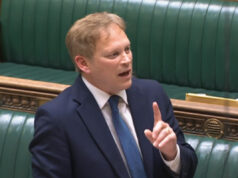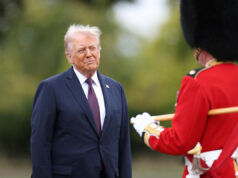PwC has argued that the Autumn Budget creates political space for a more assertive approach to defence spending and modernisation, following the Chancellor’s decision to reaffirm a rise in defence expenditure to 2.6 percent of GDP by April.
Ian Hillier, PwC UK’s defence lead, said the commitment lands at a moment when Parliament has been warned that the UK’s industrial base cannot yet support sustained collective defence. In his view, strong public backing for increased military strength provides “license to be bold in making continued investments.”
Hillier also drew attention to the Chancellor’s plan to overhaul venture capital schemes to boost high-growth companies.
He noted that the United States and Germany already use venture capital-style procurement models to speed the adoption of emerging defence technologies, suggesting similar approaches could give the UK an advantage. “If the adoption of alternative private financing schemes can be applied to the defence sector, there’s an opportunity to put the UK’s considerable financial muscle to better use in pursuit of national security,” he said.
PwC’s recent Forces for Change research underpins that argument. According to the firm, two-thirds of the public now support strengthening the armed forces and believe improvements to the industrial base are essential. The findings add further pressure on ministers to match rising rhetoric on resilience with practical investment and reform.
Further detail can be found in PwC’s Forces for Change report here https://www.pwc.co.uk/industries/defence/insights/uk-armed-forces-public-survey.html.














‘In his view, strong public backing for increased military strength provides “license to be bold in making continued investments.”’
Strong public backing exists so long as you don’t suggest cutting other bits of spending.
This is the case no matter the topic. The public have strong support for the NHS, as long as it doesn’t involve them personally paying more tax.
Which is why relating specific taxes to specific spending areas is a must.
People still think that NI covers NHS, Pensions and benefits.
If people could see linkage the reaction change.
I want a strong defence and I also want to be treated for cancer in a reasonable amount of time.
Or them being the ones paying for it..or buying expensive things like aircraft carriers, warships and nuclear missiles.
Perhaps if a single politician had been honest and said “We need to bring more money in to rebuild our infrastructure, our healthcare system and our military” it would have gone down much better than saying “Of course we don’t need to increase taxes, inflation may be through the roof but everything’s free!” then immediately putting taxes up anyway.
Or done the sane thing of borrowing to invest in jobs and wages and let inflation reduce the debt..
Are you kidding, have you not been watching the media and electorate loosing their s**t at the prospect of 1p being added to tax in the budget.
Rachel reeves is logged as the most unpopular chancellor in history for doing what? Not a lot, almost nothing.
People don’t want honest politicians, they want more stuff and they want someone else to pay for it.
Sadly those days are well gone, holding onto what we have will be a struggle let alone any hope of real growth. Problem is what serious growth exists be it ai, robotics server farms et al and the talent and finance behind them are greatly drawn to California. Taxing these US centric operations online is getting enormous resistance from this US regime and this may continue beyond it. Where do we thus grow the economy much other than in servicing these businesses and operations. So mostly trickle down crumbs at the corporate level., not a good place to be economically. And that’s before all these companies start replacing workers with ai on a transformative scale. How do we pay a population when foreign made robots and foreign designed ai and software services dominate most of it not even operated from within Britain. Our services business is still strong but will rapidly suffer ever greater competition I fear. We are probably past the best it will ever get here and it’s a matter of surviving the increasing threats. Don’t see any signs of our politicians being capable of that or most of our business either.
To be fair, I have definitely heard this argument being made quite loudly, particularly from the party I think you’re ridiculing
I don’t love the party either btw, just wanted to contribute to say I’ve deffo heard that argument from them
So 70 years of cutting defence spending, depleting capability, neglecting infrastructure, troop training, welfare and accommodation the, “peace dividend?”. Which coupled with over a £trillion in borrowing has funded an ever entitled boomer population hooked on the bloated bosom that is the welfare state. So it’s A OK to neglect all other services including the defence? Who cares we barely have any air defence systems, independent global satellite network for communications, ground imagery, missile tracking etc etc etc. As long as Doris and Trevor get their triple locked state pension on top of their £40k – £50k+ private income, winter fuel, free prescriptions, bus pass, Christmas bonus and over 44% of ALL NHS expenditure. Yep that’s it. Perfect sense.
Brother, I’m not advocating for that view, simply pointing out it’s existence.
With no war to fight in Ukraine, the Russian focus will change, and NATO members better watch out. The minute power lines are blown, and pipelines are disrupted, the public will be fully behind additional defence spending regardless of nationality.
Well that’s a surprise so can PwC kindly tell “Rachel from accounts” that they are proper professional accountants and she needs to pull her finger out and let Mr Healey have some extra pennies to buy some new kit ! Oh and don’t let GDLS anywhere near it !
She passed the extra pennies on, her path way now includes 3% of GDP spending by the end of the decade which is actually a lot of new money and the 2.6% increase for next year is also confirmed.
I have no idea however why the defence investment plan is so delayed or what’s holding it up but it does not appear to be Rachel from accounts or the Treasury (unless it’s value for money metrics they are imposing on service chiefs)
I hope we see it soon
What was said about 3%, any set date? 2030???
As far as it sounds like we are stuck at 2.6% from 2027-until 2030?
Ignore what I said, no announcement has been made yet about the path to 3% by the end of parliament. My mistake.
Jim, it may be a lot of money but the rampant waste, overinflated costs and urgent need to spend that money on every branch of service just to keep them running (let alone give them new ships and planes) while also being hidebound for the need for constant assessments, reviews and proposals… I reckon it won’t go far enough, not by a long way.
Combine this with the West’s need to have very small, very elite (and therefore complicated and expensive) amounts of hardware – because they can only AFFORD very small amounts of it – we simply are not getting enough bang for our buck. Or quid, in our case.
I think the treasury would agree with you
The 2.6% isn’t next year, it’s the year after. The 3% is in the next Parliament and not in Reeves’ gift. Had she committed to an stepped increase each year up to 29/30, it would have stood a chance of being real. I hope that the extra £6bn in 27/28 can be used to do something new rather than fill in black holes, and I really, really hope it’s actually treated as extra money and doesn’t go on yet another redefinition. Because MOD will have spent it the day after the Prime Minister’s announcement earlier in the year.
As far as Defence goes, this is just more managed decline.
Hi Jim last night I went through the HMT Budget Policy for 2024 and 2025, if you go down a bit I’ve summarised it, she seems to have actually listened and yes there is a decent uplift in spending year on year
Now he has his pocket money Mr Healey can go spend it !
A steady incremental increase in spend, otherwise we won’t get value for money, but we also need to show we are at higher readiness and less time for that.
But will Labour be “more politically assertive” about defence?
There is a report in today’s Spectator that defence chiefs have written to Healey saying that, unless real money is forthcoming quickly, they cannot deliver the SDSR and that further force cuts will have to be made.
As the man said, “The heat is on.”
Money has been delivered.
I’m quite sceptical of the “service chiefs” especially if leaking letters to the spectators is their operating method.
Probably the same guys who said Ajax was fine.
Delivered where?
Agreed
Correct me if I am wrong but doesn’t the 2.6% also include money for the security services? If true, then no new money.
Yes. It’s 2.5% without.
They didn’t claim new money though, it’s reaffirming the previous commitment to go from 2.3 to 2.5 (2.6 without intelligence)
Yep – good point; the devil is in the detail!
Strange PwC comment. Is it a lead in to the defence industry plan? Miliband’s net zero strategy is not supplying impetus to economic growth we need. Defence just might. Orders for more Typhoons, MCM ships, UK Patria, more CR3, WCSP re-instated, NMH at Yeovil?
The PWC report is essentially an opinion poll on public attitudes to defence. There is no attempt to review options for future force size or equipment.
Until we see the Defence Industrial Plan, we have no idea how the rise to 2.5% of GDP might be spent.
But in addition to modestly increased spending, we really need to optimise the effectiveness of existing or contracted assets.
For example, with further delays to F35 weapon integration and continued shortage of qualified engineers, there is little point in buying more, A or B.
Instead, using one carrier in an amphibious support role could make good the likely loss of Argus. It would also take pressure off the MRSS ambition ( which also seems at odds with the new light role of the RM. )
Getting more SSNs back to sea, and acceleration of the timescale of new frigates would be an affordable improvement.
Army re equipment is underway, albeit at a glacial pace. Replacing lost artillery capability should be a priority.
With bigger industrial benefits, buying more Typhoons, with UK weapons already integrated seems an obvious choice.
And would our OPVs be more useful in keeping tabs on Russian intrusions than being deployed on the other side of the world?
Worrying report in Spectator that defence chiefs have told government that SDR is undeliverable. More money needed just to avoid further cuts.
The upside is that we all knew that anyway. It’s comforting to confirm our service chiefs know it too, as you can’t tell from their public speeches.
There is a very good reason why the idea of using a QE as an LPH wasn’t followed up on and I can some it up in 1 word “Risk”. A single QE costs about the same as half a dozen Amphibious ships and sticking a £3 billion ship near an enemy coast is just asking for trouble ! The MRSS ships will replace our present ships !
OT – Ajax – do not use directive
Forceews reports that use of Ajax is temporarily suspended to allow investigation of why 31 soldiers fell ill during an exercise in Salisbury
The Ajax saga got so bad for so long I felt ill whenever the topic came up. Just as I was finally convinced it had been sorted out we get today’s admission. When will we learn? Before or after we(or the survivors) are all learning to speak Chinese or Russian or MAGA-speak?
The MOD did get a tiny bone in todays Budget when Reeves stated that defence spending will reach 2.6% of GDP (up from 2.5%) from April 2027. One newspaper report estimates that will amount to about £2.6bn extra that year. If the MOD also can start winding down military aid to Ukraine thanks to a peace deal – that will help a lot. Cancel the horrendous Chagos Islands deal and that will be another money saver. But ultimately the MOD got no extra cash in the Budget for this FY so significant belt tightening is currently the order of the day in order to make ends meet. Of course the MODs pleas for more money are hardly helped as the Ajax fiasco again dominates the news, whilst cost increases at the Defence Nuclear Enterprise appear to be epic in scale – sucking in many £billions of funding that was originally allocated to other important projects.
That had already been announced by the Prime Minister and it’s not more money. It’s just a redefinition. Aound £3bn of the intelligence services will be included in the Defence numbers from 2027, rather than not included in the Defence numbers as they will be in 2026. It’s a slight of hand.
Jon, Ta for the clarification. Classic government PR spin, announce the same good news multiple times in multiple ways and you can fool most of the people most of the time.
No it isn’t the sleight of hand is that security (SIA) counts towards our NATO target, which is what we declare as Defence spending but HMT still has them in separate budgets and both are going up ! Defence gets the Lions share of extra money.
As always great to see the defence budget going up, but I do worry as it seems at least publicly that nothing is being ordered. Kit that should of been ordered a while ago ie IFV’s,SRAD, SPG’s and so is just being held back, of course might be very good reasons for this but like most it feels as if nothing much is going on. Would help full if those in power explained the delay rather than silence, defection smoke and mirrors.
It does seem a lack of money and lack get up and go, the whole no rush it will get there in time way of doing nothing. As far as i can remember no new kit for the Army has been ordered in well over 2 years less for a tiny up grade in air defence and lots of spares and service contracts, begs the question what to the gunner regts who once had AS90 do all day? and are 14 wheeled SPG’s all the Army can bring to bear in fight along with a less then 10 up gradedd MLRS thts it?
If you want to see the figures they are in the HMT 2025 Budget policy report. But before going into it have a look at the 2024 version as it gives a bit of a before and after for comparison figures, and although not massive there has been a noticeable increase in funding.
It’s a bit odd that for headline “Defence” spending it combines the Defence budget and the Single Intelligence Account (which is what counts towards our NATO target) but they are actually separate budgets in the Treasury Accounts.
Other thing to remember is Defence consists of 3 different types of spending which when combined give the Defence budget but add on SIA for the OA NATO headline figure.
In the 2024 Budget (all figures are Billions) the forecast for Defence Spending was £56.9 but it is £60.4 so a rise !
2025 Budget figures
24/25 Defence 60.4 + 4.5 SIA so £64.9 OA
25/26 Defence 61.9 + 5.0 SIA so £66.9 OA
26/27 Defence 65.8 + 5.1 SIA so £70.9 OA
27/28 Defence 71.3 + 5.3 SIA so £76.6 OA
28/29 Defence 73.9 + 5.0 SIA so £78.9 OA
The thing to remember is that a lot of the present equipment spending is at or over the top of their cost curves so there should be money available for Mr Healey to get on with his DIP
When I go shopping I have a Budget that I can afford to spend, I then decide what I Need, what I’d Like and what would be Nice to have but can live without.
It’s the same for Defence no one signs contracts if they don’t know they have the funds to pay for them.
I think you will find Mr Healey will be making his announcement in the next few weeks now he knows what “Rachel from accounts” has give him. TBH it’s better than I was expecting 🤷🏼♂️
well you know what you are on about and have explained well and simply to me so thank you, lets hope its good choice of kit and not just lead by coct, or penny pinching.
What the hell is “political space” You either want to improve our defence posture or you don’t. As our Meerkat friens would say. It’s so simples.